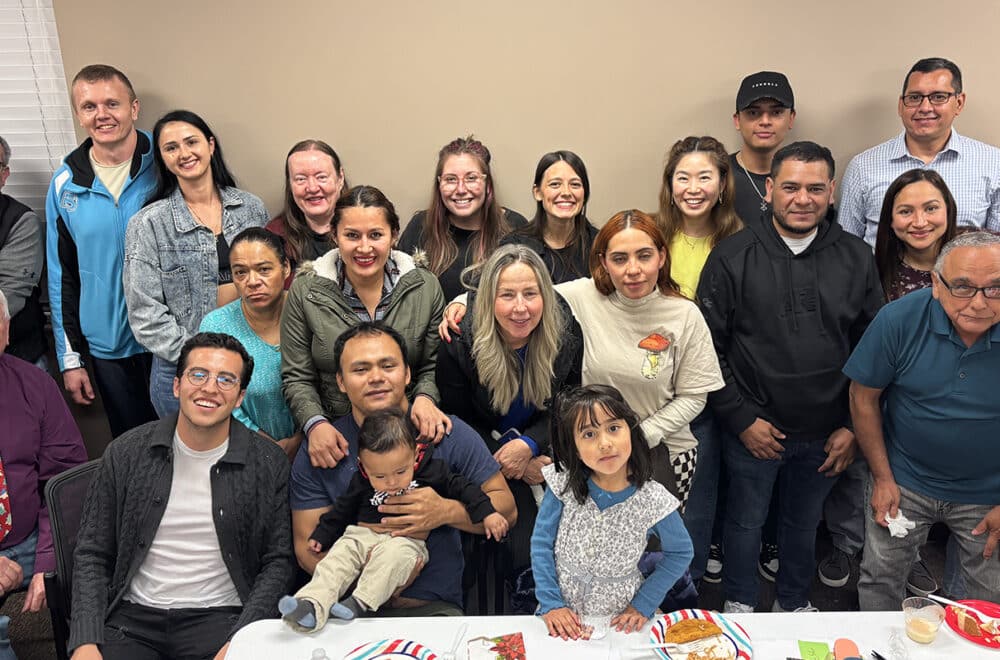We don’t treat people like people very often. Instead, we often treat others as objects. We’re only interested in them for what they can do for us. And sometimes we treat people as projects.
There were times in my life when I treated people as objects—even when sharing the Gospel. To be honest, I wasn’t always concerned about what happened in someone’s heart. Instead, I was concerned about “being a witness for Christ.” It didn’t matter if the person I’d talked to understood what I’d shared or if it had any impact on his life. I’d “shared the Gospel.”
However, if we have anything but that other person’s very best interests at heart, when we share the Gospel, we are in danger of treating them as something other than what they really are—a person.
Sometimes we treat people as projects—part of an objective to be accomplished. We tend to think that the key to completing a project is efficiency. We reason that if we can organize the process, get everything well-defined and mapped out, we’ll be able to “get the job done.”
That’s an illusion. My wife and I spent 10 years as Navigator missionaries in Brazil, and for five of those years we didn’t even have a telephone. If we wanted to get even a short message to someone, we’d get in the car, drive across town, and deliver the message face-to-face. Instead of taking three minutes it took us 45 minutes. That’s not very efficient.
But when we drove across town to deliver that three-minute message, we’d actually spend more time with the person. Instead of taking three minutes to pass on information, we’d spend 20 minutes talking—finding out how that individual was actually doing. That doesn’t happen in a three-minute phone conversation. We were constantly relating to people—not just passing on information.
In my early days as a Navigator I trained young men who lived in our home. We did everything “right.” I’d regularly meet one-on-one with each of the young men. We’d do Bible study. I’d check their Scripture memory. I’d ask what was going on in their personal ministry. Then I’d pass on some spiritual lesson to them to help them grow.
I hadn’t known any of these men before they moved in with us. They were strangers when they came to our house. And they were strangers when they left. I sensed that something wasn’t quite right, but I didn’t know what it was. After all, we were doing everything “right.” Then, as one of the men was moving out, he said to me, “You don’t love us.”
He was right. I was too focused on them as projects rather than people whom God loved personally. The men who lived in my home never really saw me as Jim Petersen.
I learned an important lesson. If I’m concerned about myself, or my agenda, I’ll never be able to relate to people.
The apostle Paul understood this. He wrote, “…because our Gospel came to you not simply with words but also with power, with the Holy Spirit and deep conviction. You know how we lived among you for your sake” (1 Thessalonians 1:5). He also wrote, “Because we loved you so much, we were delighted to share with you not only the gospel of God but our lives as well” (1 Thessalonians 2:8). These early disciples didn’t just get information from Paul, they got to see what kind of person he was.
How do we treat people like people? We need to treat them the way God treats us. We tend to judge them. But God treats us with mercy—with compassion. Should I treat the people around me with anything less? The judgments we hold against others destroys our ability to relate to them.
The apostle Paul provides a key to reaching others—to treating people like people. “To the Jews I became like a Jew, to win the Jews. To those under the law I became like one under the law (though I myself am not under the law), so as to win those under the law. To those not having the law I became like one not having the law (though I am not free from God’s law but am under Christ’s law), so as to win those not having the law. To the weak I became
weak, to win the weak. I have become all things to all people so that by all possible means I might save some” (1 Corinthians 9:20–22).
As you read that, think: Who adjusted to whom? We’re sometimes uncomfortable around the people we’re trying to reach. We want them to change to make us comfortable. But Paul suggests that it’s the one bearing the Good News who remains uncomfortable. He adjusts to the lifestyle and the mentality of the person he’s trying to reach.
Everything that a man does—all his immorality, all of his sin—is only the symptom of his alienation from God. And no wise doctor treats symptoms.
We need to accept people as they are. That’s what Jesus did with the woman at the well. He didn’t condemn her. He accepted her. He made her feel comfortable with Him. Then He told her, to “go and sin no more.”
We have to learn how to do that.
Adapted from Jim Petersen’s message The Essence of Love in Discipleship Library.




Thank you for this authentic testimony of how we can unconsciously treat people as objects or projects. You remind me of Jesus command to his disciples to love one another. It is not love when one is viewed as a soul not a person or anyway that diminish their dignity.
“Neither the one who waters or the one who plants is anything, but God causes the growth.” “Seek first the kingdom of God and His righteousness…” Also may you know the grace of Christ, the love of God and the fellowship of the Holy Spirit..2 Cor 13:14.